Are Human Rights in Freefall?
The Estonian Institute of Human Rights will host its annual conference on December 8, 2017 in Tallinn, Estonia.
This seventh annual high-level human rights conference is a unique event that brings experts from various fields with diverse backgrounds and differing views together under one roof with the common objective of ensuring enduring respect for human rights values. The conference will address a number of today’s most important topics – terrorism, technological development, security, small states in a globalising world, culture and international cooperation – through a human rights perspective. In an ever more critical global security environment we will take stock of the current state of freedom of speech, privacy and many other fundamental rights and ask ourselves, are human rights in freefall? Together we will contemplate ways to better protect the human rights of all people and everyone’s right to life.
Does technology pose a danger to human rights?
Technological development is creating many new and beneficial opportunities, but recent years have also demonstrated that technological advances can also have a downside. The rise of populism, internet hacking, fake news, cybercrime, terrorist groups that use social media for recruitment purposes – these are but a few examples of new, 21st century threats to fundamental rights. How do we ensure that our openness on social media is not used against us? How do we maintain privacy when every move we make on the internet leaves a trace? Is our right to information guaranteed when fake news abounds and the media is incentivised to provide us with click bait? How can we protect our fundamental rights in cyberspace?
Europe on the brink of a fundamental rights crisis?
Europe’s bureaucratic and often project-based system is having trouble meeting the new challenges of today. We have been hit with a rise in populism and terrorism, extremist movements and the popularity of isolationist policies, a migration crisis and the closing of borders. A sense of security and protection are inevitable preconditions for the guarantee of human rights, but these can only be achieved through international agreements. If countries no longer want to cooperate, will the international human rights system still function? Europe is facing an important question: how to combine different cultural spaces and customs so that the human rights of both the majority populations and of the migrant populations are respected while maintaining a level of security that will allow for these fundamental rights to have true effect? How can we solve the conflicts in Europe and the rest of the world in a way that will allow us to stay true to our fundamental values?
Are Human Rights in Freefall?
Human rights are basic values that we should carry with us at work, at home, in our personal, professional and international relations, in cyberspace, on social media and everywhere else. And yet lately, “human rights” seem to be empty words, something we speak about only in very particular contexts and which are recognised as belonging to specific groups only. Are human rights as a set of values no longer relevant? Or have our rights become so self-evident that we no longer even think about them? And if we do think about them, do we perceive that rights go hand in hand with obligations? What is the state of human rights today? Are we heading for a setback or are we on the brink of something new?
Small states, indigenous peoples and human rights?
Small states have a role in this world that large states do not always notice. Small states are flexible and can adapt faster to innovation and global change. This also holds true for human rights. In our rapidly changing world it is the small countries that are able to offer effective new solutions for the protection of human rights. What small countries lack in size, the make up for in mobility, and this makes them good partners for larger states.
Small states have a greater appreciation for the importance of international law, as it is more important for their survival than it is for larger states. This allows a small country to better understand some of its shortcomings better than large countries might, which may allow it to bring important messages to the table in the UN Security Council. Estonia aspires to become a member of the UN Security Council in 2020-2021.
A small state has a better understanding of the situation of indigenous peoples. The ability of indigenous peoples to protect their culture, way of life and living environment is limited. Small states could assume this special mission. As a member of the UN Security Council, Estonia would draw attention to the rights of indigenous peoples.
Every year, our Annual Conference brings together over 300 people: activists, politicians, diplomats, government officials, journalists, analysts and experts from over thirty countries.
Among others, our conference has hosted Madeleine K. Albright, Mihhail Hodorkovski, Dominique Reynie, Ülle Madise, Vagn Joensen, Cuno Jakob Tarfusser, Richard Barrett, Dr Quirine Eijkman, Mustafa Qadri, Kalev H. Leetaru, Artjom Troitski, Stephen J. Rapp, Gentian Zyberi, Riina Kionka, Dunja Mijatovic, Thomas Zerdick, Malavika Jayaram, David Mothander , Douglas Davidson, Anja Mihr, Christopher McCrudden, Mustafa Džemilev, Marriët Schuurman, Galina Timtšenko, Dalee Sambo Doroug, Maria Makejeva, Lauri Mälksoo, Dmitri Muratov and others.
The patron of the conference is The President of Estonia, Kersti Kaljulaid.
The organiser reserves the right to make changes in the schedule and the presenters.
By invitation
-
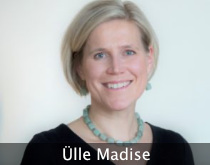 2019Parallel World Values and InterestsA clean environment and future of the globe, the possibility to preserve your privacy and option to disengage, which is necessary for the human psyche, are practical topics that apply to everyone.
2019Parallel World Values and InterestsA clean environment and future of the globe, the possibility to preserve your privacy and option to disengage, which is necessary for the human psyche, are practical topics that apply to everyone. -
 2018Conflicts of ValuesIn 2018, the panels discussed the topic of small countries as equal partners, whether human rights have a future, how much algorithms affect human rights and whether Russia has a future.
2018Conflicts of ValuesIn 2018, the panels discussed the topic of small countries as equal partners, whether human rights have a future, how much algorithms affect human rights and whether Russia has a future. -
 2017Are Human Rights in Freefall?The conference will address a number of today’s most important topics – terrorism, technological development, security, small states in a globalising world, culture and international cooperation – through a human rights perspective.
2017Are Human Rights in Freefall?The conference will address a number of today’s most important topics – terrorism, technological development, security, small states in a globalising world, culture and international cooperation – through a human rights perspective. -
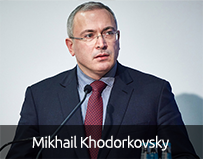 2016Black and White Values in a Polarizing WorldThe topics under discussion this year include a survey of public opinion on human rights among the Estonian citizens and foreigners living in Estonia, questions related to collective human rights and propaganda that have changed people’s understanding of basic rights.
2016Black and White Values in a Polarizing WorldThe topics under discussion this year include a survey of public opinion on human rights among the Estonian citizens and foreigners living in Estonia, questions related to collective human rights and propaganda that have changed people’s understanding of basic rights. -
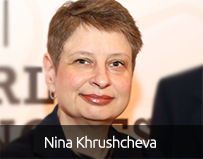 2015Human Rights in Changing TimesThe topics under discussion this year include case studies from the European Court of Human Rights, linguistic human rights, as well as the views of various generations of Russians today regarding their society.
2015Human Rights in Changing TimesThe topics under discussion this year include case studies from the European Court of Human Rights, linguistic human rights, as well as the views of various generations of Russians today regarding their society. -
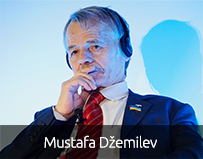 2014Dignity in the context of human rightsThis year the conference agenda included three keynotes and a panel discussion following each one: 1) guarantees under international law; 2) rights of native peoples; guarantees under international law; 3) the situation and future in Russia and Ukraine and human rights.
2014Dignity in the context of human rightsThis year the conference agenda included three keynotes and a panel discussion following each one: 1) guarantees under international law; 2) rights of native peoples; guarantees under international law; 3) the situation and future in Russia and Ukraine and human rights. -
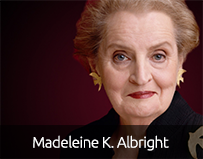 2013Human Rights and the Freedom to AssociationThis year’s annual conference, titled “Human Rights and the Freedom of Association” will analyse the global developments in human rights that have taken place in 2013.
2013Human Rights and the Freedom to AssociationThis year’s annual conference, titled “Human Rights and the Freedom of Association” will analyse the global developments in human rights that have taken place in 2013. -
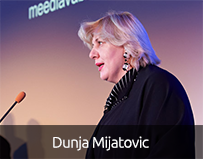 2012New Challenges of Human RightsOur conference examined human rights where the internet and the concept of security have altered dramatically our 20th century understanding of the core issues of human rights.
2012New Challenges of Human RightsOur conference examined human rights where the internet and the concept of security have altered dramatically our 20th century understanding of the core issues of human rights. -
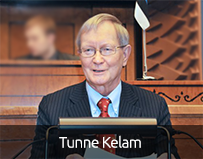 2011Dedicated to the 20th anniversary of restoration of independence of Estonia
2011Dedicated to the 20th anniversary of restoration of independence of Estonia


